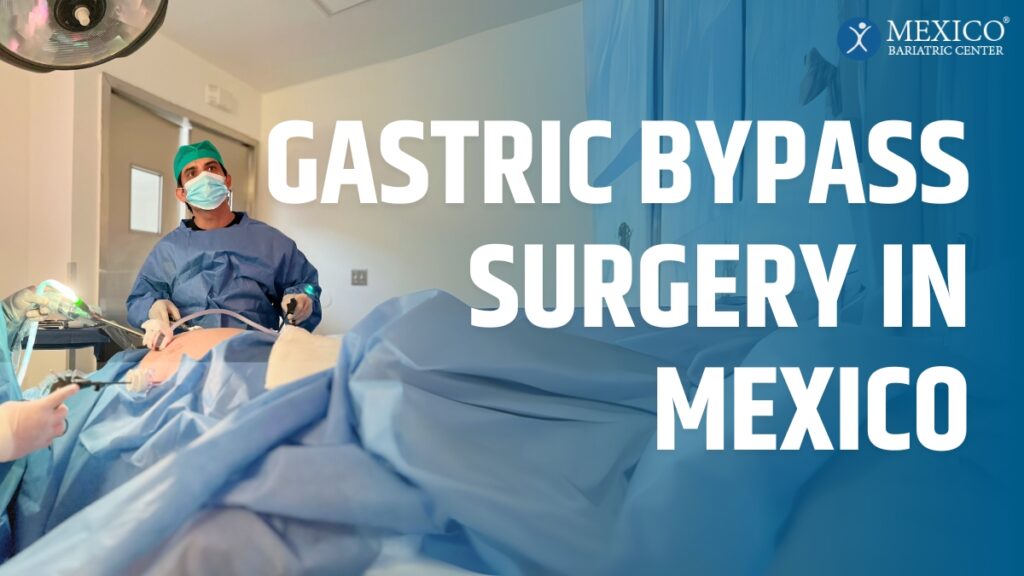RNY Gastric Bypass – Long-Term Weight Loss
Fighting morbid obesity and obesity-related disease with diet and exercise alone is not an effective long-term solution. A dieter’s body may encourage fat to regain after initial weight loss by complex mechanisms.
Surgical treatment of obesity is a lifestyle decision and it is important to fully understand all surgery types, the benefits, complications, and risks associated with them before committing to a procedure. Bariatric procedure like RNY gastric bypass, changes the setpoint and shift the patient’s neurohormonal axis to a lower range. Therefore, the body will be an overfed state and it will not be as hungry and the metabolism goes up. This will give you a second chance in life!
Gastric Bypass Procedure
Gastric bypass surgery is a restrictive and mal-absorptive type of weight loss surgery. In this procedure, the digestion process is altered by limiting and restricting the amount of food that the stomach can take in and limiting the absorption of those foods or a combination of both of these things. The stomach is divided into a smaller portion that is stapled in order to create a small pouch.
The new pouch is disconnected from a part of the intestine and then reconnected in order to allow food to pass directly from the stomach into the lower portion of the intestine. This helps promote weight loss.
Benefits
Not only does gastric bypass cause extreme weight loss, but it has been proven that it helps to improve comorbidities such as high blood pressure, Type II Diabetes, sleep apnea, and arthritis. The surgery is considered a permanent solution but can be reversible for those that have experiences with leakages or blockages.
Candidates For Surgery

The best candidates according to the University of Chicago Medicine believe a patient with proven failed attempts at losing weight with a body mass index (BMI) of between 35 to 40 with obesity-related medical conditions or individuals with a BMI of over 40. Other tests will be done before surgery occurs to determine the safety of the procedure with that particular candidate. Some tests may include:
- An abdominal ultrasound
- A colonoscopy
- Chest x-ray
- Echocardiogram
- Pap smear
- Pulmonary function tests
- Sleep study
- Stress test and/or cardiac cauterization
This surgery is not recommended for individuals with medical conditions such as hypertension or Type II Diabetes, also those over 55 years old are deterred from having this type of weight loss surgery.
Complications/Risks
Some risks of weight loss surgery in general are:
- Calories and nutritional deficiencies
- Port or wound infection
- Acute stomach obstruction
- Intestinal leak
- Incisional hernia
Lung problems, dumping syndrome, gallstones, low blood sugar, ulcers, vomiting and malnutrition all can also occur in rare instances.
Expected Weight Loss
Patients can expect to lose about 50-80% of their excess weight. This is with regular exercise and by following the post-op diet properly. Typically gastric bypass patients lose the most weight within the first year or two after surgery. They must also maintain weight loss following the post-op plan.
Hospital Stay
Most patients are in the hospital for three to five days after surgery. Patients are asked to walk each day and may have a catheter draining fluids from their stomachs. Many individuals will not be able to eat for several days but will be given liquids or pureed food instead. A patient will be able to go home when they can do the following:
- Digest food without vomiting
- Move around without a ton of pain
- Don’t need IV pain medication anymore
Post-Op
Regular follow-ups are important for gastric bypass patients. Patients must also take a calcium supplement with Vitamin D, an iron pill, Vitamin B12, and a multivitamin. Some patients may opt to have plastic surgery after their extreme weight loss experiences such as a gastric bypass.
Typically patients cannot soak in water until all incisions are healed. They also can only drive after they have finished using pain medications following surgery. Gastric bypass patients typically return to work after a few weeks. This depends on their particular healing and their adjustment to their new post-op diet.
What is the Process?
- Contact our helpful Patient Coordinators
- Get Approved for weight loss surgery
- Book and Schedule your surgery
- Consult our Nutritionist
- Begin your Pre-Operative Diet
- Undergo Surgery
- Consult with Nutritionist to develop a healthy lifestyle
What Does the Packages Include?


